Our submission to the EC 2025 Rule of Law report
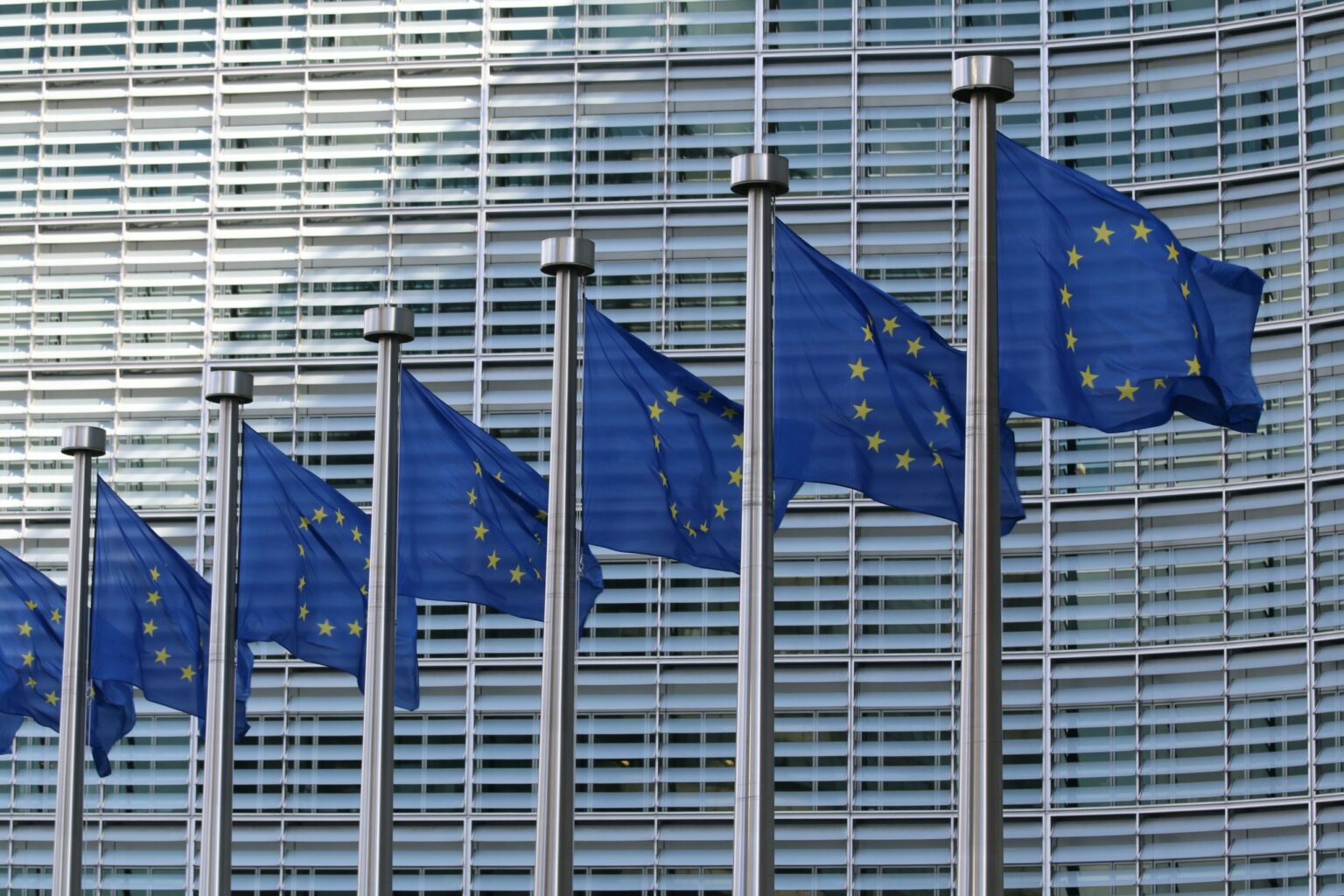
After a year of elections across the EU, threats to democracy and the rule of law are growing both in Europe and globally. Our submission highlights more clearly than ever the connection between these threats and the instrumentalisation of LGBTI people.
Disinformation, hate speech, and discriminatory political discourse have surged in many countries, directly impacting the lives of LGBTI people. At the same time, violence and restrictive legislation against LGBTI individuals are increasing, undermining the rule of law.
The Frontline: Protesting Italy’s surge in anti-LGBTI violence
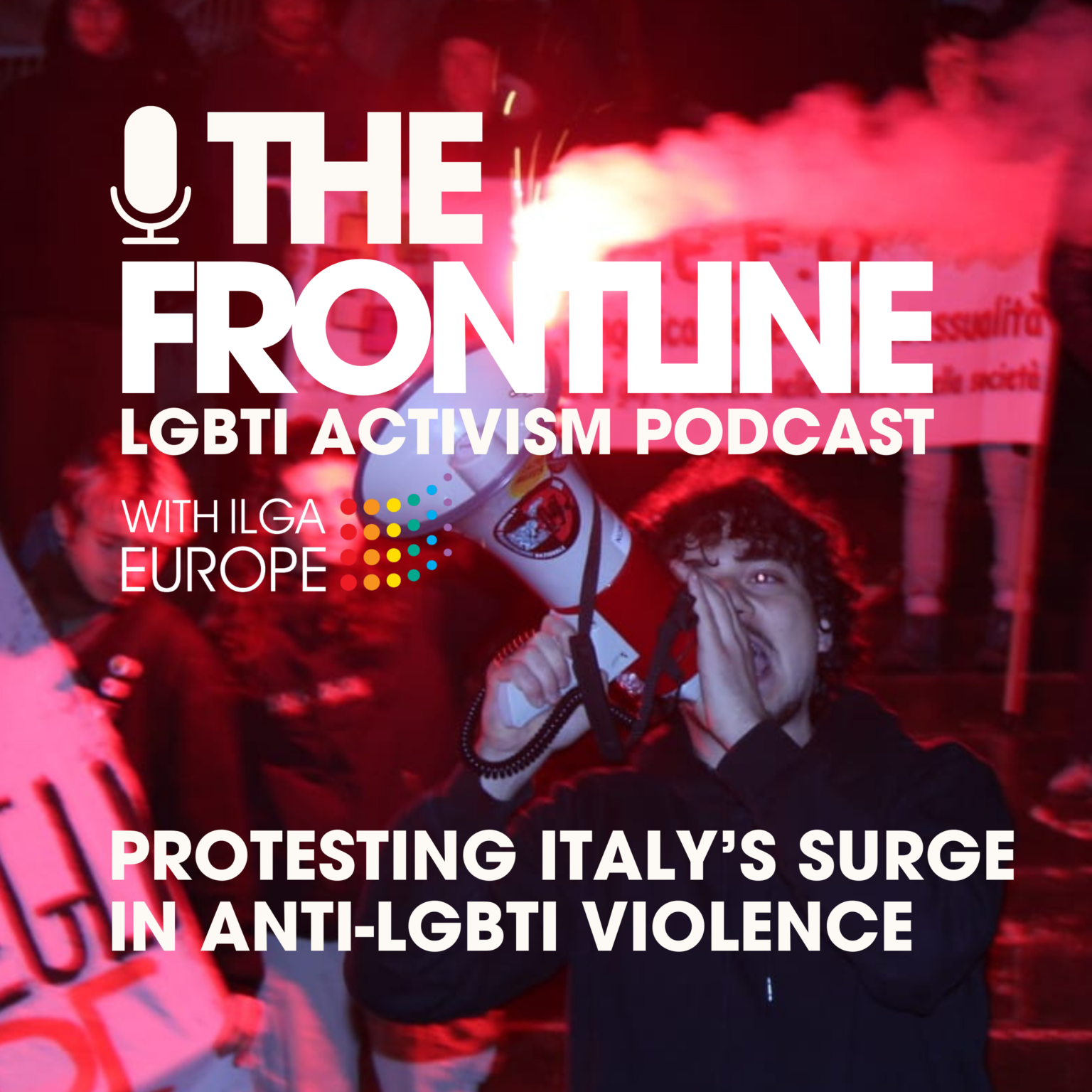
Over the past month, Italy has seen a wave of LGBTI-phobic violence. There have been no less than four hate-motivated attacks in the last four weeks, while hate messages have appeared on the doors of the Cassero LGBTQIA+ centre in Bologna.
The attacks have prompted large protests in both Rome and Milan, demanding the government to take urgent action. But all this is taking place at a time when openly LGBT-phobic rhetoric is used by Italy’s leaders, while legislative protection for LGBTI people in Italy is seriously lacking.
In this episode of The Frontline, we talk with activists from Italy to discuss the alarming rise in hate attacks and how the government is failing to acknowledge the anti-LGBTI motives of the attackers, while at the same time creating a fertile ground for such attacks.
Joining us to explore ways forward for the LGBTI movement, and what the EU should be doing, are Roberto Muzzetta from Arcigay, the largest LGBTI organisation in Italy, and Silvia Magino from Associazione Quore, which works with the community in Turin, and Rosario Coco, President of Gaynet, and Italy-wide association working on training and communication on LGBTI issues.
Tune in now to stay informed on the situation in Italy, the actions activists are taking in response, and their demands, as the country’s leadership continues to politicise anti-LGBTI sentiment within the European Union.
Statement: ILGA-Europe calls on Italian government to end anti-LGBTI rhetoric and violence
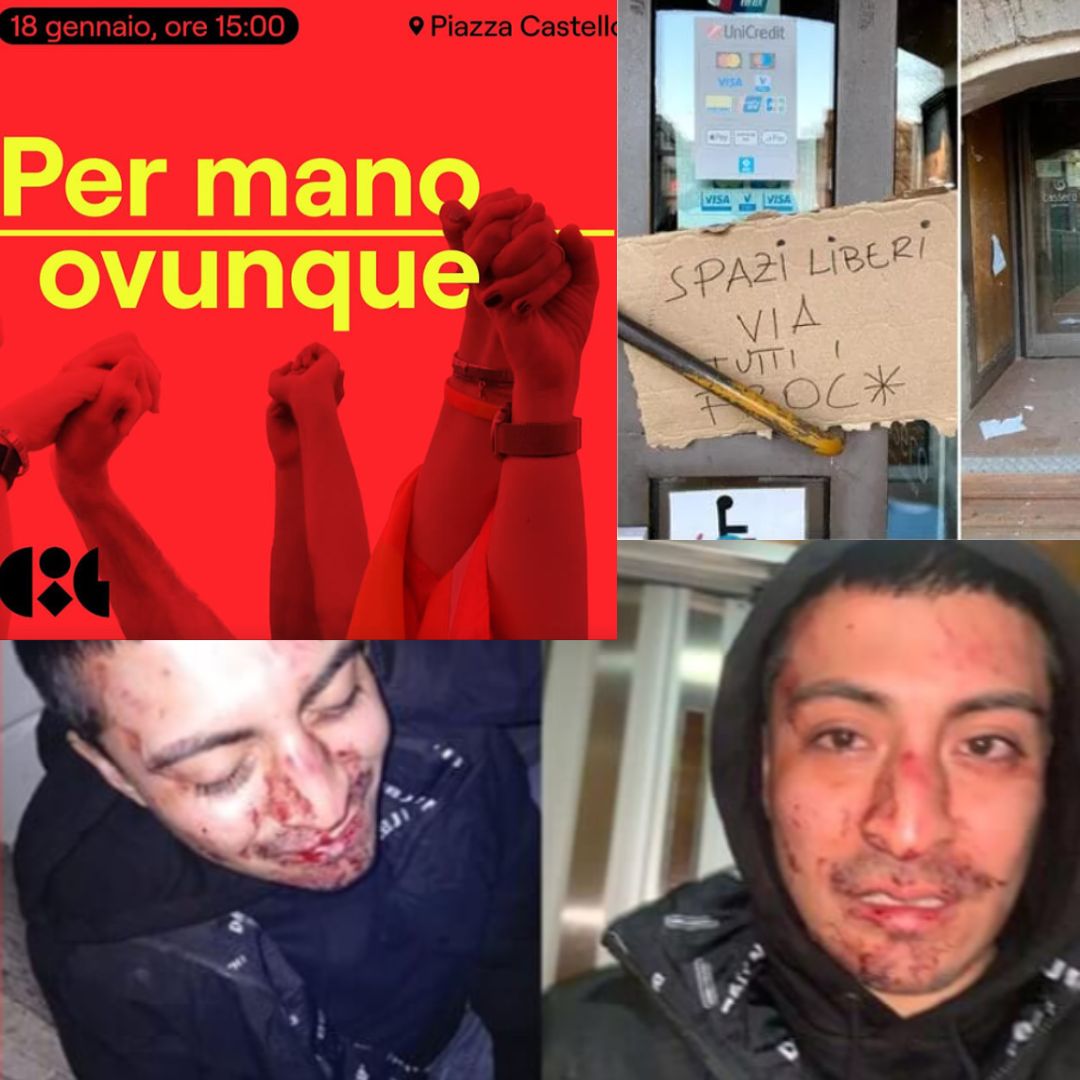
ILGA-Europe stands in solidarity with Italian LGBTI people who continue to face increased hatred and violence and calls on the Italian government to stop feeding a growing divide in Italian society
Over the last weeks, Italy has seen a new surge of LGBTI-phobic violence. There have been no less than four hate-motivated attacks on LGBTI people in the last four weeks, prompting a large manifestation tomorrow in Milan demanding the government take action.
According to the ILGA-Europe’s Rainbow Map, Italy still lacks crucial legal protection for LGBTI people, such as comprehensive hate crime and hate speech laws that would protect LGBTI people, as well as other minorities, from hatred and violence. This legislative gap is even more worrying at a time when violence against LGBTI people in Italy is alarmingly on the rise, exacerbated by the use of openly LGBTI-phobic rhetoric by some politicians. The persistent “witch hunt” against so-called “gender ideology” has created a fertile ground for justifying and amplifying LGBTI-phobic hatred within society. Such narratives not only perpetuate discrimination but also embolden those who act on their prejudices, further endangering the lives and well-being of LGBTI people.
In addition to the increased frequency and severity of LGBTI-phobic attacks (one of the attacks on New Year’s Eve, perpetrated by ten assailants on a gay couple who were holding hands, resulted in serious injuries to the couple – including a head injury and broken nose), the Cassero LGBTQIA+ Centre was vandalised with threatening messages which read: “Free space from faggots”. This targeting of an LGBTI organisation is evidence of the more systemic nature of the issue – those who would want to commit LGBTI-phobic violence have been emboldened by the rhetoric and actions of the ruling parties. A legislative project, the so-called ‘Zan’ law, was voted down in 2021. The law would have designated violence against LGBTI people and disabled people, as well as misogyny, a hate crime. Giorgia Meloni’s party voted against the law and publicly celebrated its defeat.
In light of these troubling developments, we urgently call on political leaders to initiate a meaningful process to establish legal protections for LGBTI individuals in Italy. Most pressingly, we demand that politicians, particularly influential figures within the government—such as Prime Minister Giorgia Meloni and Minister Eugenia Roccella—publicly and unequivocally condemn the growing wave of LGBTI-phobic violence.
Regardless of political considerations, it is the bare minimum for a government that claims to uphold democratic values to take a firm and unwavering stance against violence, especially when it targets minorities. Accepting any form of violence as “the new normal” is incompatible within a society that aspires to equality, dignity, and justice for all.
We urge immediate action to ensure that Italy will return to being a safer, more inclusive country where everyone is protected and valued, regardless of their sexual orientation, gender identity or sex characteristics.
LGBTI activism in the new far-right era
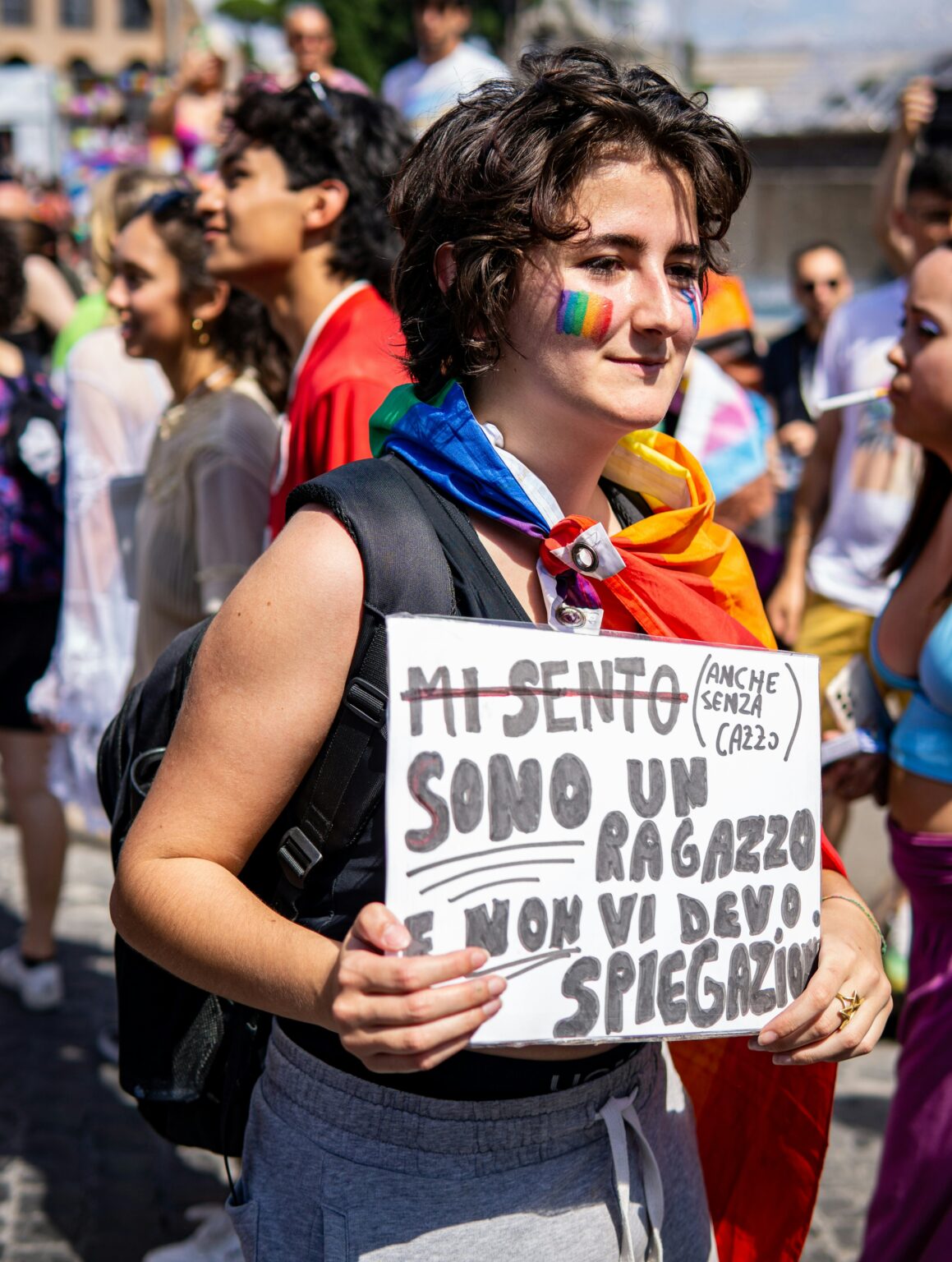
Activists in the Balkans, Greece, Italy and Poland talk about the shared challenges across Europe as the far-right continues to gain ground.
As the far-right gains a serious foothold across Europe, LGBTI groups and organisations continue working and living in the reality that is becoming more and more taxing. Inspired by conversations with activists from Intersex Greece, GayNet Italy, Love Does Not Exclude in Poland, and Trans Mreza Balkans, this blog highlights the shared challenges faced by LGBTI organisations amidst the rising tide of far-right politics. If you are working in an LGBTI NGO, you will undoubtedly find yourself familiar with at least some of these issues.
Financial instability and resource constraints
Many LGBTI organisations face financial instability, relying heavily on external funding with little to no governmental support. External funding poses its own set of challenges as it is often project-based with flexible or core funding hardly available. Such dependency forces organisations to juggle multiple projects. This makes them to expand their expertise in the need to secure necessary funds but it turns to be unstainable in a long run.
Hubert Sobecki, Board Member of Love Does Not Exclude in Poland explains: “We are growing too fast with too few people and too many tasks and processes in hand. The lack of sustainable dedicated funding makes it impossible to plan long-term.” At the same time, strategy and long-term planning is what’s needed in the face of well-organised populist far-right tide.
(Too) rapid organisational growth
Activism is growing as a response to anti-democratic developments and the failure of many states to uphold human rights. Such rapid organisational growth, coupled with limited resources, poses significant challenges. As grassroots movements evolve into more structured organisations, they encounter numerous administrative and operational hurdles as well as a mental toll. These include implementing professional systems, managing cybersecurity, and adapting to increased administrative burdens, while at the same time striving to keep the human-centred family-like essence that many LGBTI groups hold as one of their core values.
Hubert Sobecki from Love Does Not Exclude further notes: “You start as a tight group protesting in the streets and gathering in cafés. Then you find yourself with a large budget and funding to manage, and suddenly you are an employer. This brings internal crises and the need for professionalisation, which we struggle to achieve with limited knowledge, time, and financial and human resources.”
Internal communication
Effective communication and coordination within the LGBTI movement are crucial yet often lacking, as many groups and organisations are pushed into reactive and defensive mode by rapidly growing anti-LGBTI attacks and far-right rhetoric. The rush to respond to external threats and media coverage often lead to disjointed efforts and missed opportunities for collaboration. Additionally, generational differences and varying communication preferences within the community can create friction and hinder cohesive action. Džoli Ulićević from Trans Mreza Balkans says: “There is not enough communication amongst ourselves. Different generations have very specific requests about communication – inside and outside the community.”
Educational gaps and capacity building
The educational systems in many countries fail to adequately address LGBTI issues, resulting in a lack of trained professionals and widespread ignorance and misinformation about the community’s needs. This gap extends to higher education, where legal and social studies often neglect or openly restrict LGBTI topics, leaving future professionals ill-prepared to support the community. Nicole Pikramenou from Intersex Greece emphasises, “There is a profound lack of courses on LGBT and intersex issues in the system of higher education in Greece. Professors who supervise legal theses on LGBTI issues often have no training in these areas.”
Strategic vision
The LGBTI movement both requires and longs for a strategic vision and long-term planning to navigate the complex and evolving political landscape. However, many organisations have had to focus on immediate, reactive measures rather than developing sustained, proactive strategies. Building a long-term perspective, enhancing day-to-day operational skills, and fostering collaboration with broader civil society are essential for enduring progress. Rosario Coco from Gaynet in Italy highlighted the need for “a long-term perspective while boosting our skills in day-to-day tools we use” in the face of rising conservative powers – “for example, it is essential now to know how to debate and prepare for a debate.”
Media representation
Adequate balanced media coverage of LGBTI issues has seen a noticeable decline, contributing to the marginalisation of the community. When LGBTI topics are covered, the media often adopts a sensationalist tone, focusing on what they perceive as the most controversial issues like surrogacy and transgender minors. This perpetuates negative stereotypes, as Rosario Coco from Gaynet Italy observes: “Media talks less about us and at the same time, media is less friendly than before.”
Community building and new ways to do activism
The need for psychological support and community building is critical, especially in regions with heightened hostility. Aleksa Milanović from Trans Mreza Balkans notes: “A lot of young people are joining the movement with specific requests about communication and support. We need to mentor them to think strategically and have a vision.”
Additionally, the need for unrestricted funding to support innovative and effective activism is needed. According to Džoli Ulićević: “We must start being very creative and rethink how we organise, maybe sometimes going back to the door-to-door hit-the-street activism because the old-school rigid NGO model is not working anymore; it is not addressing new challenges and is inefficient the reality we live in.”
More resources
The quotes in this blog were taken in the framework of ongoing conversations we have with LGBTI activists about the impact of rising far-rights. This set of conversations happened as a follow-up on the programme ‘Strengthening the European LGBTI movement in the Context of Rising Anti-LGBTI Forces’ that ILGA-Europe ran in 2021-2022. In the aftermath of the programme we created resource cards for The Hub, our free learning centre for the LGBTI movement.
Joint statement on Italian Constitutional Court ruling on non-binary & trans persons’ rights
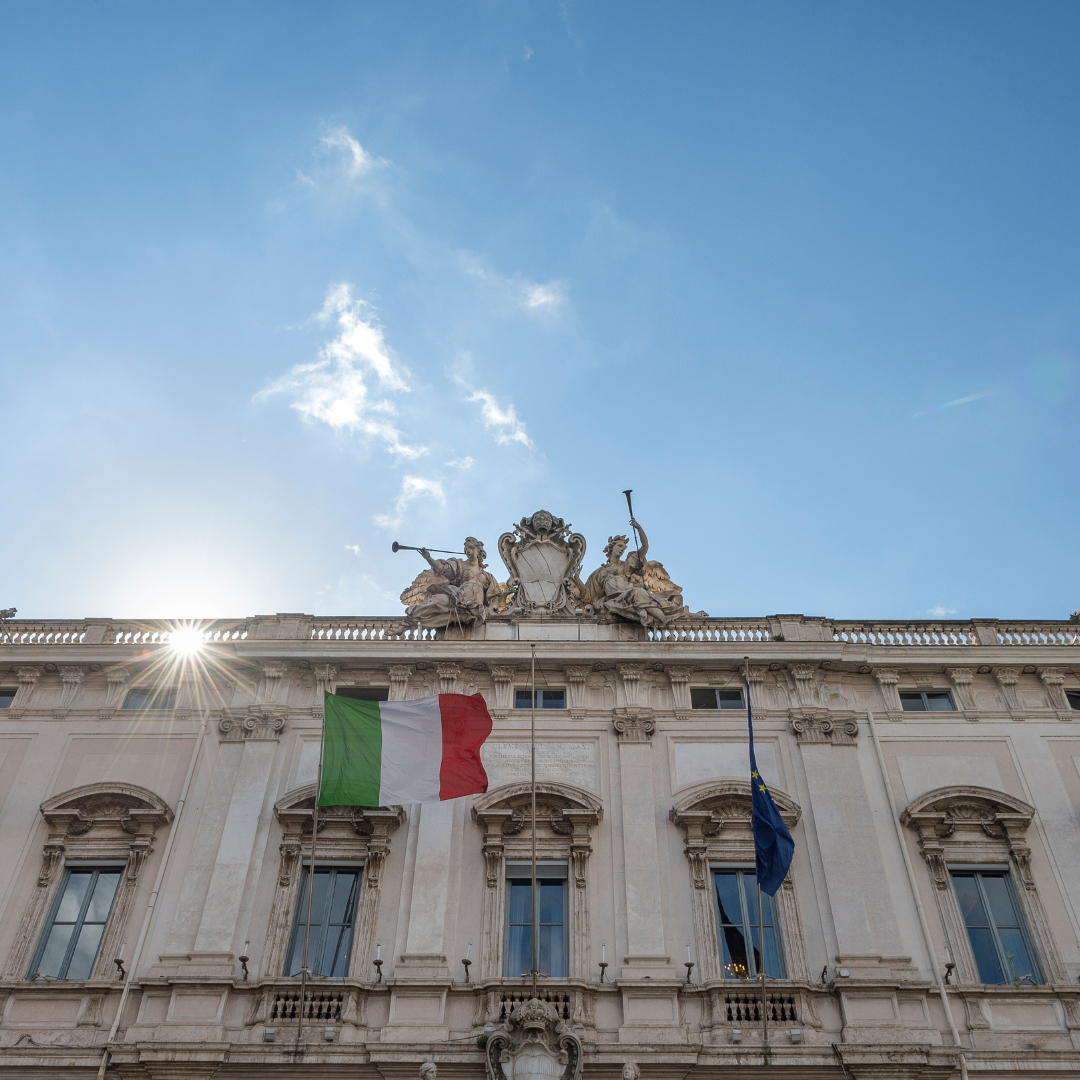
ILGA-Europe and TGEU welcome a judgement of the Italian Constitutional Court finding that non-binary peoples’ rights are protected under the Italian Constitution
In a judgment published last week, the Italian Constitutional Court found that non-binary peoples’’ rights are protected under the principles of social identity, equality of citizens and the right to health as guaranteed by the Italian Constitution. The Court did not, however, recognise a right to be registered as non-binary in Italian civil registries. The Court also repealed the legislative provision requiring trans people to obtain a court’s authorisation prior to accessing transition-related surgery.
ILGA-Europe and Transgender Europe (TGEU) welcome this decision but regret that the Court failed to recognise a right to a third legal gender option in Italian registries and identity documents. Our organisations submitted an amicus curiae in the case, expressing that the introduction of a third legal gender option protects the rights to self-determination, dignity and private life of many trans people, intersex people and people of other gender identities.
The decision follows a referral by a regional court on the case of a non-binary Italian citizen, raising two questions of constitutionality to the Constitutional Court.
Missed opportunity to recognise a third legal gender option in the Italian system
The first question concerned the current lack of a third legal gender option in Italian registries and identity documents.
The applicant argued that the failure to recognise non-binary gender identity harms individuals’ social identity (Article 2 of the Constitution) and equality before the law (Article 3 of the Constitution), since legal gender recognition is allowed only to those whose gender identity falls within the binary. The Court also examined a violation of the fundamental right to health under Article 32 of the Constitution, and whether the lack of recognition of non-binary gender identity compromises psychophysical wellbeing.
The Constitutional Court declared this question inadmissible, citing the wide repercussions that the introduction of a third legal gender option would have on various sectors of the legal system, which would necessitate a systemic legislative reform of the system and of the many institutions currently operating under the gender-binary logic.
However, the Court brought this question to the attention of the legislator. It noted that the lack of a third legal gender option in the Italian system can lead to unequal treatment and/or can compromise the psychophysical wellbeing of concerned individuals, which can in turn raise issues around the respect for social dignity and protection of health under Articles 3 and 32 of the Constitution.
The applicant, as well as ILGA-Europe and TGEU – Trans Europe and Central Asia in their third-party intervention, recalled that non-binary gender identity has now been recognised in numerous legal systems across Europe. Iceland and Germany are leading the way and Denmark and Malta partially acknowledge non-binary identities) [1]. A gender marker option in official registries and documents other than male or female (unspecified or third gender marker option) is an important issue for a growing number of people in trans and intersex communities. The EU Fundamental Rights Agency (FRA) found that nearly every second person in the trans community identifies outside of the gender binary, that is not (entirely) identifying as male or female [2].
The Italian Constitutional Court ruling was highly anticipated in this respect, and it could have triggered legislative changes inspiring other countries to follow suit and potentially transforming the landscape of non-binary rights in Europe.
Unconstitutionality of the obligation for trans and non-binary people to obtain judicial authorisation to access transition-related surgeries
The second question concerned the obligation in Legislative Decree no. 150 of 2011 for trans and non-binary people to obtain a court decision to be authorised to access transition-related surgical interventions.
The applicant argued that such an obligation violates the fundamental right to self-determination (Article 2 of the Constitution) and the right to equality before the law (Article 3), since requiring judicial authorisation for a medical procedure that is lawful is unreasonable. Such a requirement is also discriminatory, because other similar interventions not linked to gender identity, are left exclusively to medical judgment and to the patient’s consent.
The Court ruled that such a requirement was unconstitutional. It reiterated that for the purpose of legal gender recognition, it is necessary and sufficient to ascertain the “objective transition of gender identity” which can be accomplished through hormonal treatments and psychological-behavioural support, without a surgical intervention. As such, according to the Court, the blanket requirement for judicial authorisation before surgical interventions is manifestly unreasonable and unnecessary.
Notably, the Constitutional Court referenced the changing jurisprudential framework in Italy on this issue, highlighting the growing Italian case-law authorising surgery at the same time as ordering legal gender recognition.
Further to this ruling, trans and non-binary people in Italy will be able to obtain surgeries as part of their trans-specific healthcare without a judicial decision, a requirement that often led to arbitrary and lengthy procedures.
ILGA-Europe
TGEU (Trans Europe and Central Asia)
- As pointed out by the applicant, the EU itself provides standard forms containing three gender options Non-Binary gender identity is recognised under Regulation (EU) 2016/1191 of the European Parliament and the Council of 6 July 2016 on the free movement of citizens on promoting the free movement of citizens by simplifying the requirements for presenting certain public documents in the European Union and amending Regulation (EU) No 1024/2012
- Russell, Sanders, Watkins, Diving into the FRA LGBTI II Survey Data: Trans and non-binary briefing’, p. 3, available at: https://tgeu.org/intersecting-oppressions-trans-people-in-europe/
What European countries might soon start recognising non-binary people?

Interested in the current state of non-binary rights in Europe? This concise guide covers the most important updates and developments you should be aware of
Current situation
As of 2024, only a few European countries officially recognise non-binary gender markers. Iceland and Germany lead the way, allowing non-binary people to have their identities legally acknowledged. Denmark and Malta partially acknowledge non-binary identities, though issues remain, particularly in areas like the healthcare sector. You can read more about it in one of our previous blogs. However, progress is slow, and many countries still lack comprehensive legal frameworks for non-binary recognition.
Which countries are next?
France and the SNCF case: potential impact across the EU
Last Thursday (July 11, 2024) the Advocate General of the Court of Justice of the European Union (CJEU) gave his opinion that France’s national railway company SNCF should stop forcing passengers to choose between the civil titles “Mr” or “Ms” when purchasing train tickets. This landmark case, brought by Association Mousse, could set a precedent similar to the Deutsche Bahn case in Germany across the European Union.
In his opinion, which was published earlier this week, the Advocate General of the CJEU said that it is not “necessary” and that it is therefore unlawful for the SNCF to collect individuals’ civil titles. The Advocate General also agreed with Association Mousse that processing data on civil titles creates a risk of discrimination on the grounds of gender identity for trans and non-binary people notably as other States legally recognise non-binary identities.
Should the CJEU’s judgement align with the opinion of the Advocate General, all organisations collecting gender markers would be forced to stop doing so when it is not necessary for the service provided. The outcome has the potential to influence broader European standards for non-binary recognition, emphasising the role of strategic litigation in advancing rights.
Belgium’s legal hurdles
Belgium’s journey towards non-binary recognition has faced significant setbacks. In 2019, the Belgian Constitutional Court declared the existing laws discriminatory towards non-binary people. The government proposed removing gender markers from ID cards entirely, but this reform has stalled due to political and technical challenges. Despite these obstacles, there are plans to eventually implement these changes.
Italy on the verge of change
Italy is also nearing a significant decision. The Italian Constitutional Court is expected to rule on the inclusion of a third gender marker. This ruling could trigger legislative changes, inspiring other countries to follow suit and potentially transforming the landscape of non-binary rights in Europe.
Legal battles play a pivotal role in the fight for non-binary recognition. Cases like the ones in France and Germany highlight how litigation can drive change even when legislative processes are slow. These legal battles and proposed reforms are part of a broader movement toward inclusivity and respect for non-binary identities across Europe.
Beyond laws: the experience of being a non-binary person in EU
The third EU LGBTIQ survey report, published in June by the European Union Fundamental Rights Agency (FRA) offers some insights into non-binary lives. Almost 20% of respondents identified as non-binary, yet more than 90% do not have their identity legally recognised. When delving into the reasons behind this, it becomes evident that non-binary people face unique challenges and perspectives.
The reluctance or perceived lack of necessity for legal gender recognition (LGR) among non-binary people is often due to the accessibility and relevance of existing LGR frameworks. These frameworks typically do not include non-binary options, which discourages non-binary people from pursuing LGR.
For instance, while nearly 60% of trans women and men intend to seek legal gender recognition in the future, only 17% of non-binary respondents share this intention. This disparity suggests that non-binary people might not see current LGR options as applicable or beneficial to their identities, especially considering the potential discrimination they might face in the process.
Additionally, safety concerns significantly impact the daily lives of non-binary people. The FRA data revealed that 23% of non-binary people frequently hide their gender identity for safety reasons, a higher percentage compared to 10% of trans men and slightly more than trans women at 20%. This heightened sense of vulnerability underscores the pressing need for legal recognition and protection.
What do non-binary people want from the law?
Despite developments in Europe and farther afield, we still have relatively little data on what non-binary people want from the law and how they are currently experiencing different legal systems. This is something which ILGA-Europe, along with other civil society partners and a team of academics, will be looking to explore over the coming year. By understanding and addressing the specific challenges faced by non-binary people, we can better advocate for their rights and recognition across Europe.
Here is a list of useful resources for policy-makers and activists on the topic of non-binary rights:
- Rainbow Map: Legal gender recognition
- Human Rights and Gender Identity and Expression: Issue Paper by the Council of Europe Commissioner for Human Rights
- Non-binary gender registration models in Europe: Report on third gender marker or no gender marker options by Lena Holzer for ILGA-Europe
- Intersections – Diving into the FRA LGBT II Survey data: Trans and non-binary briefing by ILGA-Europe and TGEU
What the EU Election Results Will Mean for LGBTI Human Rights
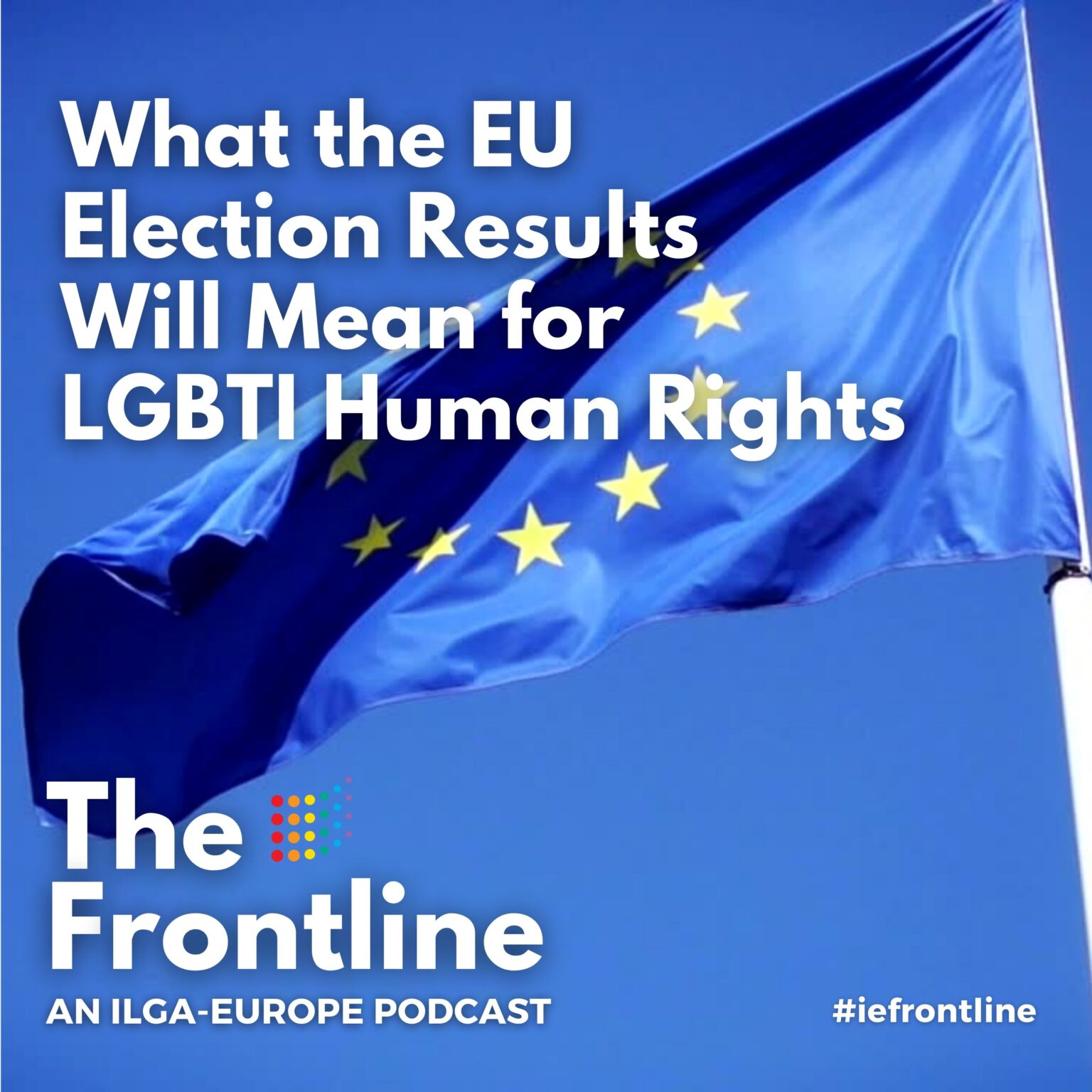
In our special post-European elections podcast, we sit down with MEP’s from the LGBTI Intergroup at the European Parliament and activists from Italy and Hungary to discuss how the outcomes, both on the European and national levels will play out for LGBTI human rights in the EU and beyond.
Although the swing to the far right predicted in the European elections hasn’t been as radical as expected, with the progressive and centre-right still holding a majority of seats, there have been seismic shifts to the right in a number of member states, including Germany, France and Austria.
In this episode of The Frontline we take a look at that this might all mean for LGBTI human rights in the EU over the coming years. Joining our Advocacy Director, Katrin Hugendubel to discuss the election results, the campaigns that led to them, and what the way forward might be are are co-chairs of the LGBTI Intergroup at the European parliament, freshly re-elected MEP’s Marc Angel from the Socialists & Democrats in Luxembourg and Kim van Sparrentak from the Greens/EFA in The Netherlands, alongside activists Luca Dudits from Hatter Society in Hungary and Roberto Muzetta from Arcigay in Italy.
Letter to political leaders: Hate and violence against LGBTI people in Italy

ILGA-Europe and Italian LGBTI organisations sent an open letter to Italian party leaders calling for support to the Come Out For Europe campaign and counter polarisation and rise in hate
Dear party leaders,
In May, politicians and governments across Europe marked IDAHOT – the International Day Against Homophobia, Lesbophobia, Biphobia, Transphobia and Intersexphobia. On May the 15th, the EU Fundamental Rights Agency launched the third iteration of its LGBTIQ survey, which shows that harassment and violence against LGBTIQ people in Europe has risen significantly since
2019. ILGA-Europe’s 2024 Annual Review finds that the increase in violence and hatred towards LGBTI people is fuelled very often by politicians and officials, in an ever increasingly polarised political climate. LGBTI people’s rights and humanity are being exploited to divide societies, undermine democracy, the rule of law and human rights.
The 2024 FRA LGBTI Survey III shows that, in Italy, 61% of respondents stated that violence against LGBTI people has increased since 2019. ILGA-Europe’s 2024 Rainbow Map, published on IDAHOT, shows that Italy scores 23 of 27 EU Member States (dropping another two places this year), when it comes to laws and policies protecting the rights of LGBTI people. Italy still does not have hate crime or hate speech laws which aggravated grounds of sexual orientation, gender identity or sex characteristics, which would protect LGBTI people from violence.
Italy is currently one of the countries in the EU facing the challenge of rapidly deteriorating rule of law and democratic standards, as well as direct attacks on fundamental rights of vulnerable groups, including LGBTI people.
On the occasion of IDAHOT day on the 17 May 2024 the Italian government refused to sign the “Declaration on the continued advancement of the human rights of LGBTIQ persons in Europe” coordinated by the Belgian Presidency of the EU, in which signatories pledged to support improved access to rights for all LGBTI people. The Italian government also did not sign the Joint ministerial declaration on the occasion of the International Day Against Homophobia, Lesbophobia, Biphobia, Transphobia and Intersexphobia, which 32 member States of the Council of Europe signed.
At a time when EU voters gather to vote ahead of the EU elections in June, it is more important then ever for politicians who support democracy, the rule of law and fundamental rights, to take a clear public stances in favour of human rights for all, including LGBTI people. Only three weeks ago, the horrendous attack on Slovak’s Prime Minister Fico, was a harsh reminder of where inciting hate and splitting societies can lead to in its extremes.
Steps initiated and taken by the Italian government to undermine the fundamental rights of LGBTI people in Italy – from deregistering lesbian mothers in some regions, to blocking support for trans children in school and through access to health-care and the proposed changes in asylum laws – are clearly in breach of international human rights standards, such as EU law (the relevant asylum directives, as well as the non-discrimination clauses of the Charter of Fundamental Rights and EU Treaties), the case law of the European Court of Human Rights, the European Convention on Human Rights and the recommendations of the Council of Europe’s Commissioner for Human Rights. These attacks are also reminiscent of developments happening in other countries that have seen LGBTI people as an easy target for stirring up unfounded fear in order to rally voters – now clearly identified as being responsible for a extreme rise in hate across Europe and rising figures of violence, also in Italy.
It is crucial that all Italian parties address the rise in hate and violence, not only to protect the rights that all people are entitled to, but also to ensure cohesion and the respect of human rights across Italian society.
We call on all political parties in Italy:
- to make a clear statement in support of the ILGA-Europe Come Out campaign, which over 1000 candidates across the EU have already supported including a wide number of Italian candidates,
- to advocate for the adoption of an ambitious second EU LGBTIQ Equality Strategy, and actively contribute to its effective implementation by mainstreaming LGBTI rights in EU internal and external policy-making.
- to propose and advocate for EU policies and laws that provide explicit protection on the grounds of sexual orientation, gender identity, gender expression, and sex characteristics, and that provide concrete responses to the needs of LGBTI people in all their diversity
- to not further play into the polarisation in society that is fuelling hate and increasing actual violence against people,
To fully commit and implement these demands, we ask you all to activate or strengthen a continuous dialogue with LGBTI CSOs in the near future to discuss what your party can do, on local, regional and national level, to counter the attacks of fundamental rights against LGBTI people and to continue to counter polarisation and the rise in hate and violence.
Kind regards,
Chaber, Executive Director of ILGA-Europe
Together with undersigned organisations:
- ARCIGAY – Associazione LGBTI+ Italiana
- Famiglie Arcobaleno – Associazione genitori omosessuali
- C.C.O. Mario Mieli
- GAYNET – Formazione e Comunicazione sui temi LGBTI
- EDGE LGBTI+ Leaders for change
- Rete Lenford – Avvocatura per i diritti LGBTI+
- AGEDO – Associazione genitori, parenti, amiche e amici di persone LGBT+
- AGAPANTO aps. Anzian* LGBTQ+
- Rete Genitori Rainbow
- ALFI – Associazione Lesbica Femminista Italiana
- ARCO – Associazione Ricreativa Circoli Omosessuali
- Associazione LGBT+ Quore
- MIT – Movimento Identità Trans
- Centro Salute Trans e Gender Variant – CEST
- Omphalos LGBTI
- Genderlens
- Libellula Italia APS
- Certi Diritti
- Gender X
- NUDI
- Dì Gay Project Tgenus
Ongoing attacks on the fundamental rights of LGBTI people in Italy, May 2024
The Italian government’s planned amendments to the asylum law which would remove protection for LGBT refugees, would breach EU law
The Italian government plans to remove the protected grounds of sexual orientation and gender identity (SOGI) from the asylum law. This would mean that LGBT refugees are no longer protected based on their SOGI status.
In addition, on March 25, 2023, the list of so-called “safe countries of origin” was updated with the addition of two more countries where homosexuality is criminalised, Nigeria and The Gambia, and without providing any exceptions for at-risk categories, such as LGBTI people. These are in addition to Tunisia, Algeria, Morocco, Senegal, and Ghana.
Under EU law, Italy has several obligations to provide protection to vulnerable groups, including those based on sexual orientation and gender identity.
Here are some of the key obligations:
- The Qualification Directive (Directive 2011/95/EU) requires member states to provide protection to refugees and persons eligible for subsidiary protection on the basis of, among other things, their sexual orientation and gender identity. Italy is obliged to implement the Directive into its national law.
- The EU’s asylum system is based on the principle of non-refoulement, which means that individuals cannot be returned to a country where they would face persecution or serious harm. This includes individuals who are at risk of persecution or serious harm based on their sexual orientation or gender identity.
- The EU’s Reception Conditions Directive (Directive 2013/33/EU) requires member states to ensure that asylum seekers have access to appropriate medical and psychological care, including care related to sexual orientation and gender identity. Italy is obliged to implement the Directive into its national law.
The government has ordered the discontinuation of transcriptions of foreign birth certificates of children born from surrogacy or artificial reproduction technology
In January 2023, the government issued a Directive instructing local authorities to discontinue the automatic transcription of foreign birth certificates of children born through surrogacy and inviting them to register only the biological parent. A second Directive was later issued, clarifying that these guidelines should also be followed in cases of children born following other artificial reproduction technology. Some prosecutors began to retroactively challenge the transcription of foreign birth certificates of children born to same-sex parents. In Padua at least 33 mothers of 37 children received notification that their child(ren)’s birth certificates, in which two women’s names appeared, were illegitimate. In many cases, the deregistration comes after many years, and the children thus ‘lose’ one mother, and sometimes their family name, from one day to the other. This exposes children to vulnerability and the loss of a number of family rights as guaranteed by the UN Convention on the Rights of the Child (UNCRC).
While the government claims that parents have a legal route to establish parentage of the second parent, namely via a special adoption procedure (“adozione in casi particolari”), LGBTI organisations have long pointed out that these procedures can take up to years, are very costly and depend on the courts, which vary from region to region.
The European Court of Human Rights has clearly ruled that Member States need to establish a mechanism to allow for recognition of the parent–child relationship for non-genetic parents, such as through adoption, and that children should not be blamed for their parents’ decisions, including about conception. In her 2023 country report on Italy, the Council of Europe Commissioner for Human Rights confirmed that the Italian procedure does not comply with the best interests of the child and reminded that even Italy’s Constitutional Court recommended the legislation be amended accordingly to ensure adoption rights for all families without discrimination. In the absence of legally ensured adoption for all, the Commissioner called on Italy to stop deregistering parents, as some prosecutors have started to do in a response to the governmental Decree.
Schools have been called upon to no longer accept the gender identity of transgender and gender variant children in education
In Italy the gender identity of trans students is not recognised by default. About 300 schools, though, have adopted a regulation to do it, called Carriera Alias. It allows (among other things) to change the name of the student in the internal documents and the school information systems. Carriera Alias, in other words, is a tool to avoid misgendering of trans and non-binary students, allowing them to use their chosen name, gender and pronouns in educational contexts. Regional Counselor of Lombardia, Giacomo Zamperini of the governing party Fratelli d’Italia, tabled a
motion to delegitimise the Carriera Alias by defining it as “illegitimate” and as “an attack against traditional family values, promoting the gender agenda”. The motion was then rejected, however, Counselor Pietro Macconi (also from governing party Fratelli d’Italia), wrote a letter to the Minister of Education and Merit, also asking for the Carriera Alias to be reviewed, with the clear aim of seeking its abolition in educational institutions. The Minister’s response is pending.
A law has been drafted to penalise surrogacy conducted abroad with criminal sanctions
The government is considering criminalising surrogacy arrangements made by Italian couples abroad, a move they claim is in line with protecting women and “traditional family values”. But in reality there is a risk that the children concerned (especially those in a rainbow family) may lose rights if their (intended) parents are indicted. As already mentioned, this is despite the European Court of Human Rights emphasising that children should not be blamed for their parents’ decisions (about conception). In light of the understandable controversy surrounding surrogacy, these children have a right to the protection of their private and family life.
Case Careggi: an investigation threatening the lives of of transgender and gender variant youth in Italy and the important work of health professionals
On 23 January 2024 the Minister of Health started an investigation requested by Senator Maurizio Gasparri from Forza Italia, on the public service of the Careggi Hospital in Florence, regarding the administration of triptorelin, a hormone blocker, to trans youth. The investigation is an attack on trans adolescents because it puts the service administered at Careggi at risk of closing down, regardless of the fact that these treatments are considered by the professionals as “a life-saving treatment” for trans youth.
The scientific community has reiterated that triptorelin is useful to avoid the risk of exposure to depression, self-harming behaviour, eating disorders, and suicidal thoughts for trans and gender-diverse youth. Although the right to health in Italy is guaranteed by the Constitution, the health and psychophysical well-being of trans youth is being questioned on ideological grounds, with an increasing use of anti-gender propaganda based on incorrect medical-scientific information spreading in the media. The Careggi Hospital is one of two health centres in the whole country providing triptorelin treatment for trans youth. The World Health Organisation’s revision of ICD-11, which came into force in January 2022, mandates the depathologisation of trans identities in all areas of life. However, the Italian National Health System continues forcing trans people to undertake long and costly psychotherapy paths not in line with international standards and which impede trans youth from accessing the healthcare they need to live their lives in dignity and safety.
Open letter from ILGA-Europe and Italian LGBTI civil society on the occasion of the PES Election Congress in Rome

On Saturday 2 March, the Party of European Socialists is gathering in Rome for their Election Congress ahead of the June 2024 EU elections to discuss their priorities for the campaign and for the future of the EU.
We are grateful that the Party has chosen Rome as the location of this important gathering, as Italy is currently one of the countries in the EU facing the challenge of rapidly deteriorating rule of law and democratic standards, as well as direct attacks on fundamental rights of vulnerable groups, all of which the Party has acknowledged as being some of the greatest challenges facing the future of the EU. The Party of European Socialists has always stood in defence of democracy, rule of law and fundamental rights, and therefore the Congress taking place in Italy is particularly significant.
In your Election Resolution adopted in December 2023, you have rightfully stated that attacks on gender equality, women’s rights and LGBTI rights are inherently linked to de-democratisation and the undermining of EU law and international standards on fundamental rights. On the occasion of your Congress in Rome, Italian LGBTI civil society would therefore like to raise your attention to the current direct attacks on the fundamental rights of LGBTI people in Italy, led by Italy’s current government. We ask the Party to shine a light on the deplorable situation unfolding in Italy for LGBTI people, and for its member parties to support LGBTI civil society in withstanding and responding to these attacks, the Partito Democratico and Partito Socialista Italiano.
1. The Italian government’s planned amendments to the asylum law which would remove protection for LGBT refugees, would breach EU law
The Italian government plans to remove the protected grounds of sexual orientation and gender identity (SOGI) from the asylum law. This would mean that LGBT refugees are no longer protected based on their SOGI status.
In addition, on March 25, 2023, the list of so-called “safe countries of origin” was updated with the addition of two more countries where homosexuality is criminalised, Nigeria and The Gambia, and without providing any exceptions for at-risk categories, such as LGBTI people. These are in addition to Tunisia, Algeria, Morocco, Senegal, and Ghana.
Under EU law, Italy has several obligations to provide protection to vulnerable groups, including those based on sexual orientation and gender identity. Here are some of the key obligations:
- The Qualification Directive (Directive 2011/95/EU) requires member states to provide protection to refugees and persons eligible for subsidiary protection on the basis of, among other things, their sexual orientation and gender identity. Italy is obliged to implement the Directive into its national law.
- The EU’s asylum system is based on the principle of non-refoulement, which means that individuals cannot be returned to a country where they would face persecution or serious harm. This includes individuals who are at risk of persecution or serious harm based on their sexual orientation or gender identity.
- The EU’s Reception Conditions Directive (Directive 2013/33/EU) requires member states to ensure that asylum seekers have access to appropriate medical and psychological care, including care related to sexual orientation and gender identity. Italy is obliged to implement the Directive into its national law.
2. The government has ordered the discontinuation of transcriptions of foreign birth certificates of children born from surrogacy or artificial reproduction technology
In January 2023, the government issued a Directive instructing local authorities to discontinue the automatic transcription of foreign birth certificates of children born through surrogacy and inviting them to register only the biological parent. A second Directive was later issued, clarifying that these guidelines should also be followed in cases of children born following other artificial reproduction technology. Some prosecutors began to retroactively challenge the transcription of foreign birth certificates of children born to same-sex parents. In Padua at least 33 mothers of 37 children received notification that their child(ren)’s birth certificates, in which two women’s names appeared, were illegitimate. In many cases, the deregistration comes after many years, and the children thus ‘lose’ one mother, and sometimes their family name, from one day to the other. This exposes children to vulnerability and the loss of a number of family rights as guaranteed by the UN Convention on the Rights of the Child (UNCRC).
While the government claims that parents have a legal route to establish parentage of the second parent, namely via a special adoption procedure (“adozione in casi particolari”), LGBTI organisations have long pointed out that these procedures can take up to years, are very costly and depend on the courts, which vary from region to region.
The European Court of Human Rights has clearly ruled that Member States need to establish a mechanism to allow for recognition of the parent–child relationship for non-genetic parents, such as through adoption, and that children should not be blamed for their parents’ decisions, including about conception. In her 2023 country report on Italy, the Council of Europe Commissioner for Human Rights confirmed that the Italian procedure does not comply with the best interests of the child and reminded that even Italy’s Constitutional Court recommended the legislation be amended accordingly to ensure adoption rights for all families without discrimination. In the absence of legally ensured adoption for all, the Commissioner called on Italy to stop deregistering parents, as some prosecutors have started to do in a response to the governmental Decree.
3. Schools have been called upon to no longer accept the gender identity of trans children in education
In Italy the gender identity of trans students is not recognised by default. About 300 schools, though, have adopted a regulation to do it, called Carriera Alias. It allows (among other things) to change the name of the student in the internal documents and the school information systems. Carriera Alias, in other words, is a tool to avoid misgendering of trans and non-binary students, allowing them to use their chosen name, gender and pronouns in educational contexts. Regional Counselor of Lombardia, Giacomo Zamperini of the governing party Fratelli d’Italia, tabled a motion to delegitimise the Carriera Alias by defining it as “illegitimate” and as “an attack against traditional family values, promoting the gender agenda”. The motion was then rejected, however, Counselor Pietro Macconi (also from governing party Fratelli d’Italia), wrote a letter to the Minister of Education and Merit, also asking for the Carriera Alias to be reviewed, with the clear aim of seeking its abolition in educational institutions. The Minister’s response is pending.
4. A law has been drafted to penalise surrogacy conducted abroad with criminal sanctions
The government is considering criminalising surrogacy arrangements made by Italian couples abroad, a move they claim is in line with protecting women and “traditional family values”. But in reality there is a risk that the children concerned (especially those in a rainbow family) may lose rights if their (intended) parents are indicted. As already mentioned, this is despite the European Court of Human Rights emphasising that children should not be blamed for their parents’ decisions (about conception). In light of the understandable controversy surrounding surrogacy, these children have a right to the protection of their private and family life.
5. Case Careggi: an investigation threatening the lives of transgender youth in Italy and the important work of health professionals
On 23 January 2024 the Minister of Health started an investigation requested by Senator Maurizio Gasparri from Forza Italia, on the public service of the Careggi Hospital in Florence, regarding the administration of triptorelin, a hormone blocker, to trans youth. The investigation is an attack on trans adolescents because it puts the service administered at Careggi at risk of closing down, regardless of the fact that these treatments are considered by the professionals as “a life-saving treatment” for trans youth.
The scientific community has reiterated that triptorelin is useful to avoid the risk of exposure to depression, self-harming behavior, eating disorders, and suicidal thoughts for trans and gender-diverse youth. Although the right to health in Italy is guaranteed by the Constitution, the health and psychophysical well-being of trans youth is being questioned on ideological grounds, with an increasing use of anti-gender propaganda based on incorrect medical-scientific information spreading in the media. The Careggi Hospital is one of two health centres in the whole country providing triptorelin treatment for trans youth. The World Health Organisation’s revision of ICD-11, which came into force in January 2022, mandates the depathologisation of trans identities in all areas of life. However, the Italian National Health System continues forcing trans people to undertake long and costly psychotherapy paths not in line with international standards and which impede trans youth from accessing the healthcare they need to live their lives in dignity and safety.
Conclusion
It is clear that the current government has begun a concerted attack on the rights of LGBTI people and on their ability to live their lives with dignity. The above-mentioned steps that the government is taking are clearly in breach of international human rights standards, such as EU law (the relevant asylum directives, as well as the non-discrimination clauses of the Charter of Fundamental Rights and EU Treaties), the case law of the European Court of Human Rights, the European Convention on Human Rights and the recommendations of the Council of Europe’s Commissioner for Human Rights. These attacks are also reminiscent of developments happening in other countries that have seen LGBTI people as an easy target for stirring up unfounded fear in order to score cheap political points – now clearly identified as an authoritarian tactic used for example in Russia and Hungary.
It is crucial that the Partito Democratico and Partito Socialista Italiano work closely with Italian LGBTI civil society as partners to strategically tackle these current and future attacks, not only to protect the rights that all people are entitled to, but also to stem the oncoming tide of anti-democratic manoeuvres by the current government, and to work to create a critical mass opposing these trends. We call on the Partito Democratico and Partito Socialista Italiano to propose bold and comprehensive legislative changes that would guarantee adoption rights to same-sex couples, add SOGIESC as protected grounds in the hate crime law, and ban conversion practices on LGBTI people.
We hope that this PES Election Congress can mark the beginning of a constructive and strategic cooperation at the Italian level, and that the Party can highlight the situation of Italian LGBTI people to their European partners.
In solidarity,
Signatories
- Arcigay
- ARCO – Associazione Ricreativa Circoli Omosessuali
- Associazione Famiglie Arcobaleno
- Associazione Quore APS
- Centro Risorse LGBTI
- Certi Diritti
- Circolo di Cultura Omosessuale Mario Mieli
- Gruppo Trans APS
- Gaynet – Formazione e Comunicazione LGBTI
- ILGA-Europe – the European Region of the International Lesbian, Gay, Bisexual, Trans and Intersex Association
- Indie Pride
- Rete Genitori Rainbow
Feature photo courtesy of Leonado Basso
Our submission to the EC 2024 Rule of Law report
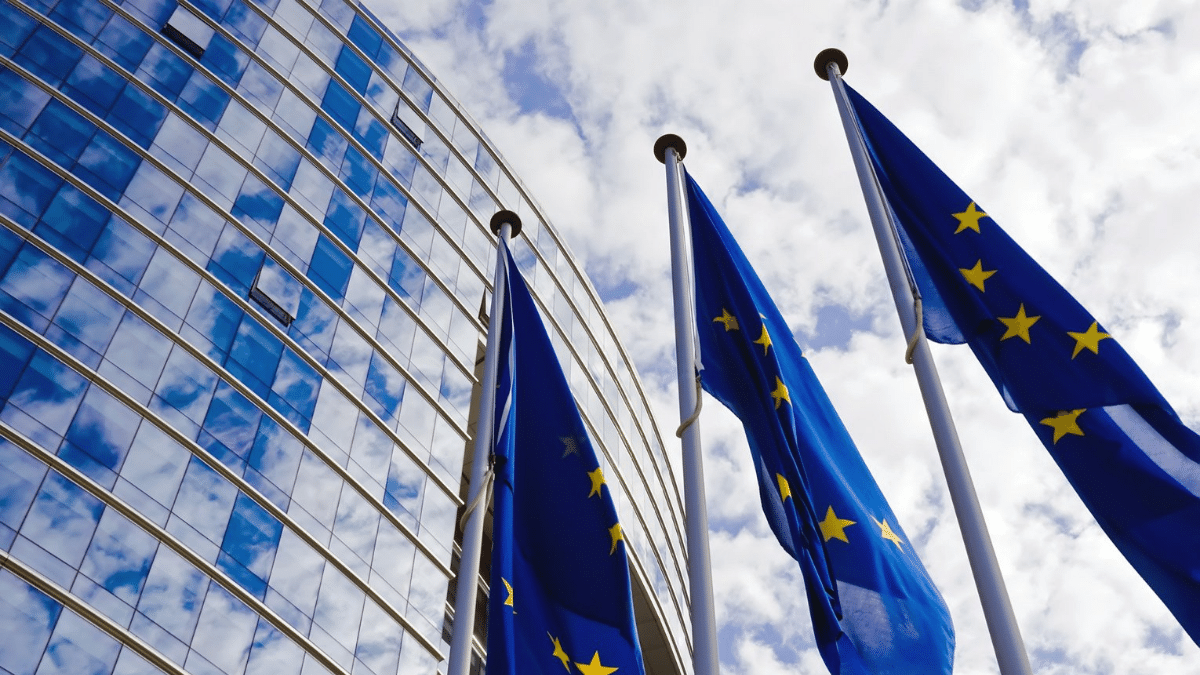
Over the past few years it has become increasingly clear that many government-led violations of LGBTI rights in EU Member States go hand-in-hand with an undermining of the rule of law and democracy. This includes in particular the degradation of the independence of judicial systems and the media landscape.
Particularly stark among this year’s submissions is the continual problem of non-implementation of European court judgments, especially around the right of LGBTI people to respect for their private and family life and the best interests of their children, as well as judgments related to legal gender recognition.
Efforts by authorities to restrict civic space; legal harassment, threats, hate speech and smear campaigns against LGBTI human rights defenders; and inadequate implementation of hate crime and anti-discrimination laws also remained prominent in 2023.
Attacks on LGBTI rights in Italy are human rights violations, Commissioner reports
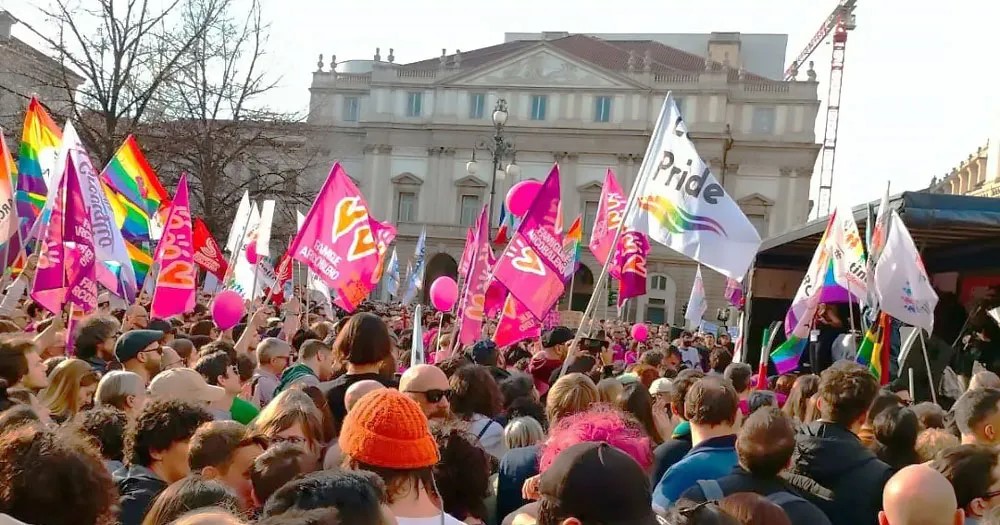
Amid legislative attacks on LGBTI rights in Italy, a new report by the Council of Europe Commissioner for Human Rights, Dunja Mijatović, calls on the Italian government to protect everyone from hate and violence
Since the new Italian government came into power in 2022, it has been toying with the rights of LGBTI people. Draft legislation that would do away with the internationally agreed protection of asylum seekers based on their sexual orientation and/or gender identity has been put forward, as well as guidelines that have led to the deregistration of lesbian mothers in several Italian cities, the drafting of a law to penalise surrogacy conducted abroad with criminal sanctions, and attempts to intimidate teachers supporting trans children in schools.
A new report by the Council of Europe Commissioner for Human Rights, Dunja Mijatović, clearly names the discontinuation of transcriptions of foreign birth certificates of children born from surrogacy or artificial reproduction technology, and the lack of protections for LGBTI people against discrimination and hatred, as human rights violations. It calls on the Italian government to step up protection of LGBTI people and their families, and to protect everyone in Italy from hate and violence.
The country report on Italy, released last week, is based on a visit the Commissioner undertook in June of this year. It addresses the topics of asylum and migration, women’s rights and gender equality, freedom of expression, safety of journalists, protection from hate crime and hate speech based on SOGIESC, and children’s rights.
Attacks on children’s rights
Addressing children’s rights, the Commissioner highlights the recent attacks against rainbow families in Italy. In January 2023, the government issued a Directive instructing local authorities to discontinue the automatic transcription of foreign birth certificates of children born through surrogacy and inviting them to register only the biological parent. A second Directive was later issued, clarifying that the these guidelines should also be followed in cases of children born following other artificial reproduction technology.
Some prosecutors began to retroactively challenge the transcription of foreign birth certificates of children born to same-sex parents. In Padua at least 33 mothers of 37 children received notification that their child(ren)’s birth certificates, in which two women’s names appeared, were illegitimate. In many cases, the deregistration comes after many years, and the children thus ‘lose’ one mother, and sometimes their family name, from one day to the other.
While the government claims that parents have a legal route to establish parentage of the second parent, namely via a special adoption procedure (“adozione in casi particolari”), LGBTI organisations have long pointed out that these procedures can take up to years, are very costly and depend on the courts, which vary from region to region.
The European Court of Human Rights clearly ruled that states need to establish a mechanism to allow for recognition of the parent–child relationship for non-genetic parents, such as through adoption, and that children should not be blamed for their parents’ decisions, including about conception. In her report, the Commissioner confirms that the Italian procedure does not comply with the best interests of the child and reminds that even Italy’s Constitutional Court recommended the legislation be amended accordingly to ensure adoption rights for all families without discrimination.
In the absence of legally ensured adoption for all, the Commissioner calls on Italy to stop deregistering parents, as some prosecutors have started to do in a response to the governmental Decree.
The attacks on rainbow families must be seen in the context of broader attacks by the government on the LGBTI community in Italy and their fundamental rights. Schools have been called upon to no longer accept the gender identity of trans children in education, the draft law proposing to withdraw the possibility to seek asylum based on prosecution based on sexual orientation and gender identity is still on the table, and LGBTI-phobic hate speech, including from politicians, has been on the rise.
Anti-LGBTI speech and hate crime
In the light of the rise in LGBTI-phobic hate and violence, the Commissioner highlights the lack of national level anti-discrimination, anti-hate speech and hate crimes legislation covering sexual orientation, gender identity, gender expression and sex characteristics (SOGIESC) grounds and calls on the Italian government to fill this legislative gap. The Commissioner highlights in particular the need to improve awareness of and response to violence against LBTI women.
The Human Rights Commissioner highlights the importance of consistent application of the legal asylum framework concerning the protection of vulnerable persons. According to us, this clearly also applies to the worrying moves of the Italian government to remove SOGI as protected grounds in the asylum law. Under EU law, Italy has several obligations to provide protection to vulnerable groups, including those based on sexual orientation and gender identity.
The Commissioner’s report is yet another voice of international institutions raising concerns about how the Italian government is failing to protect the human rights of LGBTI people and instead is more and more using LGBTI people as pawns in political games, putting them at risk of violence and discrimination. The attacks by the government are a reminder that only legal protections such as adoption rights for same-sex couples can ensure that the fundamental rights and the best interest of all children to have their parents recognised are guaranteed – legal protection that Italy is largely lacking. The lack of legal protections for LGBTI people has resulted in Italy being one of the lowest ranking EU Member States on ILGA-Europe’s Rainbow Map – placing at 22 out of 27 EU member states currently.
Together with Italian LGBTI organisations and activists, ILGA-Europe will continue to call on the Italian government to reconsider its current anti-LGBTI actions and decisions and work to advance legal protection, especially in the area of non-discrimination, family recognition and protection against hatred and violence.
JOINT STATEMENT ON HUMAN RIGHTS VIOLATIONS IN ITALY

Today, November 20, we celebrate UN World Children’s Day, and feel compelled to draw attention to the recent developments in Italy where some children no longer have their parents recognised.
Earlier this year, Italy’s Minister of Interior of Meloni’s government announced that registrars should no longer register the children of same-sex couples. The government’s intimidation resulted in a series of administrative and legal attacks against LGBTIQ* families throughout the country. In Padua, at least 33 mothers of 37 children received notification that their child(ren)’s birth certificates, in which two women’s names appeared, were illegitimate. On Tuesday 14 November 2023, the first hearings possibly leading to the retroactive removal of the non-biological mothers’ names from their respective birth certificates, effectively erasing the legal motherhood of the non-biological mothers, took place before the Court of Padua. The public prosecutor’s office and the lawyer of the mothers in question, claim that removing one mother is unconstitutional.
In many cases, the deregistration comes after many years, and the children thus ‘lose’ one mother, and sometimes their family name, from one day to the other. The deregistration of a parent marks a clear breach of human rights, with significant negative impacts on the well-being and day-to-day lives of the parents and the children, and is clearly not in the best interests of the child.
These attacks are possible due to the fact that Italy lacks a national law ensuring recognition at birth or through the adoption of the children of same-sex couples. A few courageous mayors have in the past agreed to register the birth certificates of children with two mothers or transcribe the birth certificates of children with two fathers to ensure the children are not exposed to discrimination. The order to deregister one of the parents ultimately amounts to orphanage by decree, instigated by the prosecution and in line with the Meloni government’s clear stance of not recognising the parental rights of LGBTIQ* individuals.
This is a reminder that only legal protections such as adoption rights for same-sex couples can ensure that the fundamental rights and the best interest of all children to have their parents recognised are guaranteed.
These attacks on rainbow families are happening in the context of broader attacks on the LGBTIQ* community in Italy and their fundamental rights by the government. Similar to the guidelines to deregister parents, schools have been called upon to no longer accept the gender identity of trans children in education, and a draft law proposes to withdraw the possibility of seeking asylum based on prosecution based on sexual orientation and gender identity. LGBTIQ*-phobic hate speech, also from politicians, has been on the rise. The Meloni government is proposing to criminalise surrogacy arrangements made by Italian couples abroad, another move that might leave children without parents and thereby extremely vulnerable.
The European Court of Human Rights clearly ruled that states need to establish a mechanism to allow for recognition of the parent–child relationship for non-genetic parents, such as through adoption, and that children should not be blamed for their parents’ decisions, including regarding conception. Children have an undeniable right to the protection of their private and family life. World Children’s Day serves as a reminder of our collective responsibility to ensure every child’s right to a stable and loving family environment.
We condemn the recent attacks on rainbow families and urge the Italian government to reconsider the current anti-LGBTIQ* actions and decisions. All families need to be recognised and respected, without discrimination, in order to protect the best interest of the child and make sure they are not exposed to discrimination.
- NELFA – Network of European LGBTIQ* Families Associations
- Famiglie Arcobaleno, ItalyArcigay Nazionale, Italy
- ILGA-Europe
- EL*C – Eurocentralasian Lesbian* Community
- Društvo kulturno, informacijsko in svetovalno središče
- Legebitra, Slovenia
- Familles-arc-en-ciel/Regenbogenfamilien/famiglie_arcobaleno/famiglias_a’artg, Switzerland
- Sateenkaariperheet ry / Rainbow Families Association Finland
- ILGA World
ILGA-Europe welcomes judgement from the Court of Justice of the European Union saying that a homophobic statement on an Italian radio show constituted discrimination in employment

In a judgement delivered on 23 April 2020, the European Court of Justice (CJEU) held that statements made by a lawyer during a radio programme, saying he would never recruit a “homosexual” or wish to use the services of such persons, fall within the material scope of EU Directive 2000/78 (‘the anti-discrimination directive’).
he case was brought by Rete Lenford Avvocatura Per I Diritti LGBT (Lawyers For LGBT Rights), an association of about 150 lawyers founded in 2007 to take representative action on the behalf of LGBT people before national and international jurisdictions, and to ensure enforcement of LGBT rights in Italy.
Having taken the view that that lawyer had made remarks constituting discrimination on the ground of the sexual orientation of employees, Rete Lenford brought proceedings in the Italian courts against him for damages. The action was successful at first instance and the ruling was upheld on appeal. The lawyer went on to appeal before the Italian Supreme Court of Cassation, which then sought a preliminary ruling from the CJEU on the interpretation of the concept of ‘conditions for access to employment … and to occupation’, within the meaning of the anti-discrimination directive.
Importantly the Court noted that the lawyer’s statements may fall within the ambit of the anti-discriminiation directive, even if no recruitment procedure had been opened or planned at the time when the statements were made, where the link between the statements and the conditions for access to employment is not hypothetical.
Because discriminatory statements can have a chilling effect on prospective employees, therefore difficult to have an identifiable victim, the Court noted that where national law provides relevant conditions, an association, as in this case Rete Lenford, may bring legal proceedings for a finding of discrimination and for a sanction to be imposed.
Welcoming the judgement, Senior Litigation Officer with ILGA-Europe Arpi Avetisyan said: “I’m extremely pleased that CJEU reaffirmed protection against homophobia in employment and made clear that discriminatory statements in employment and occupation under the EU law are strictly prohibited. The Court sent a strong message that EU law does not tolerate discrimination based on sexual orientation and safeguards “the principle of equal treatment in employment and occupation, and the attainment of a high level of employment and social protection”. Congratulations to Rete Lenford on the victory and for setting an important milestone in clarification of EU law.”
According to Miryam Camilleri, President of Avvocatura per i Diritti LGBTI – Rete Lenford: “We are overwhelmed by this result. This Judgement represents a great advancement in the enforcement of the protection of LGBTI rights in the EU and in each European Country – the re-affirmation of the right not-to-be-discriminated against and the empowerment of many fights conducted in the name of LGBTI individuals. At the same time, we are particularly honored to have provided the opportunity for the Court to take this historic decision. It’s implications expand beyond the boundaries of LGBTI rights, and serve the interests of associations and NGO’s working in other discriminated against sectors.”
- Find out more about the case and the Associazione Avvocatura per i diritti LGBTI – Rete Lenford.
- Find out more about our strategic litigation work.
- Find out more about the judgement and read the full judgement here.
For comment, contact Arpi Avetisyan, Senior Litigation Officer with ILGA-Europe at arpi@ilga-europe.org
Voices of ILGA-Europe: Meet Italian legal eagle, Emiliano Ganzarolli

The Court of Justice of the European Union has just made a landmark decision, saying that a lawyer who declared that he would never hire a “homosexual” person in his law firm was discriminating under an EU employment directive. Meet activist Emiliano Ganzarolli, from the powerhouse group of LGBT lawyers who took the case.
Emiliano Ganzarolli is a member of Rete Lenford Avvocatura Per I Diritti LGBT (Lawyers For LGBT Rights) an association of about 150 lawyers founded in 2007 to take representative action on the behalf of LGBT people before national and international jurisdictions, and to ensure enforcement of LGBT rights in Italy.
The association has notably been active in the fight for marriage equality, and the implementation of a civil partnership framework for same-sex couples.
“In 2007 there was nothing in the Italian law concerning either civil unions or marriage and the association itself was actually founded because of this lack in our system,” says Emiliano in an interview filmed for the Voices of ILGA-Europe project last October. “It brought together lawyers and activists from the civil society to bring cases up to the constitutional level. In 2010 the constitutional court was asked to deliver a judgement on the possibility or not to have equal marriage in Italy. The case was not successful, we still don’t have equal marriage in Italy, but that was the beginning of many battles the association took.”
Recently, the Association was involved with the first case in Italy involving discrimination in an employment context, after an attorney declared during a radio interview that he would never hire a homosexual person in his law firm.
The case was brought in front of a tribunal in the Court of Appeal by Rete Lenford. “It was successful in the first instance, and the second, and then the case was appealed in front of the Supreme Court in Italy,” Emiliano explains. “The Supreme Court referred the case to the Court of Justice of the European Union (CJEU).
“When we received the communication that the Supreme Court had referred the case to the CJEU, it was the immediate reasoning to involve an umbrella association, somebody able to actually properly talk at the same level with the European institutions. So it came naturally to involve ILGA-Europe in this. ILGA-Europe’s litigation department has been extremely supportive, especially putting us in contact with the other EU countries.”
Two distinct questions arose before the Italian Supreme Court: Firstly, does legislation prohibiting discrimination in access to employment also cover a general statement made on the radio to the effect that the interviewee would not recruit homosexuals to his law firm? Secondly, in the absence of an identifiable victim, is it possible for Rete Lenford to seek to enforce the prohibition of discrimination in employment and occupation, including through the award of damages?
In a judgement delivered on 23 April 2020, the CJEU decided on behalf of Rete Lenford. Importantly the Court noted that the lawyer’s statements may fall within the ambit of the European Union anti-discrimination directive, even if no recruitment procedure had been opened or planned at the time when the statements were made.
Because discriminatory statements can have a chilling effect on prospective employees, therefore difficult to have an identifiable victim, the Court noted that where national law provides relevant conditions, an association, as in this case Rete Lenford, may bring legal proceedings for a finding of discrimination and for a sanction to be imposed.
Welcoming the judgement, Senior Litigation Officer with ILGA-Europe Arpi Avetisyan said: “I’m extremely pleased that CJEU reaffirmed protection against homophobia in employment and made clear that discriminatory statements in employment and occupation under the EU law are strictly prohibited. The Court sent a strong message that EU law does not tolerate discrimination based on sexual orientation and safeguards “the principle of equal treatment in employment and occupation, and the attainment of a high level of employment and social protection”. Congratulations to Rete Lenford on the victory and for setting an important milestone in clarification of EU law.”
European Court of Human Rights reminds Italy of obligation to protect same-sex couples
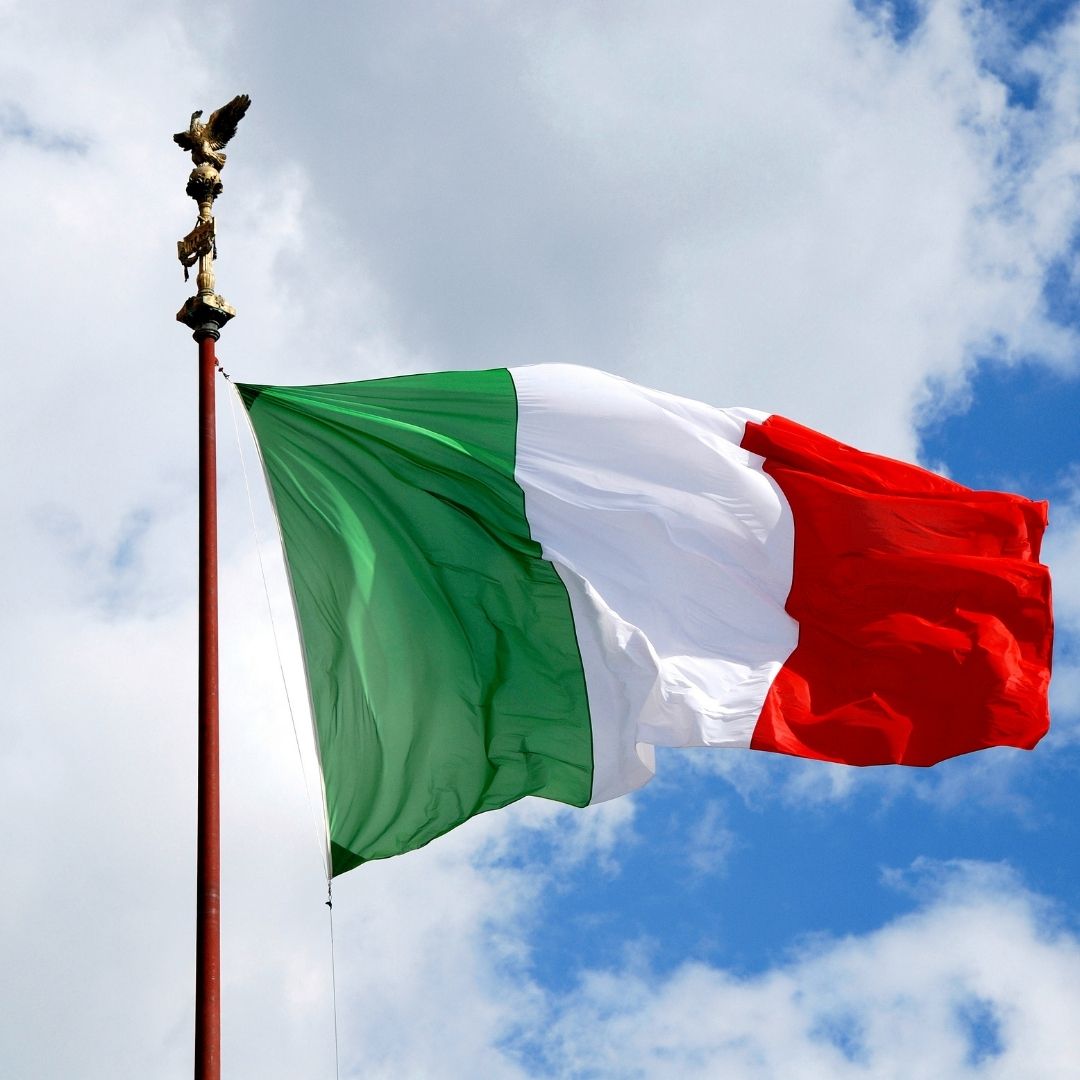
In the Orlandi and Others v Italy decision released today, the European Court of Human Rights has condemned Italy for failing to legally protect same-sex couples who married abroad.
This judgment reaffirmed that Council of Europe member states have an obligation to safeguard the family life of same-sex couples. This means putting in place a framework for recognition of their relationship (within the meaning of Article 8 – the right to respect for private and family life).
The European Court of Human Rights found that by failing to recognise applicants’ marriages contracted abroad (before the law on civil unions came into force in 2016), Italy had left the couples in a legal vacuum, continuously facing obstacles in their daily lives.
While acknowledging that states have the discretion on the question of whether or not they introduce marriage equality, the Court did take into account rapid developments in recognition through civil unions or registered partnerships, thus finding a violation of Article 8.
Oliari and Others and Orlandi and Others v Italy
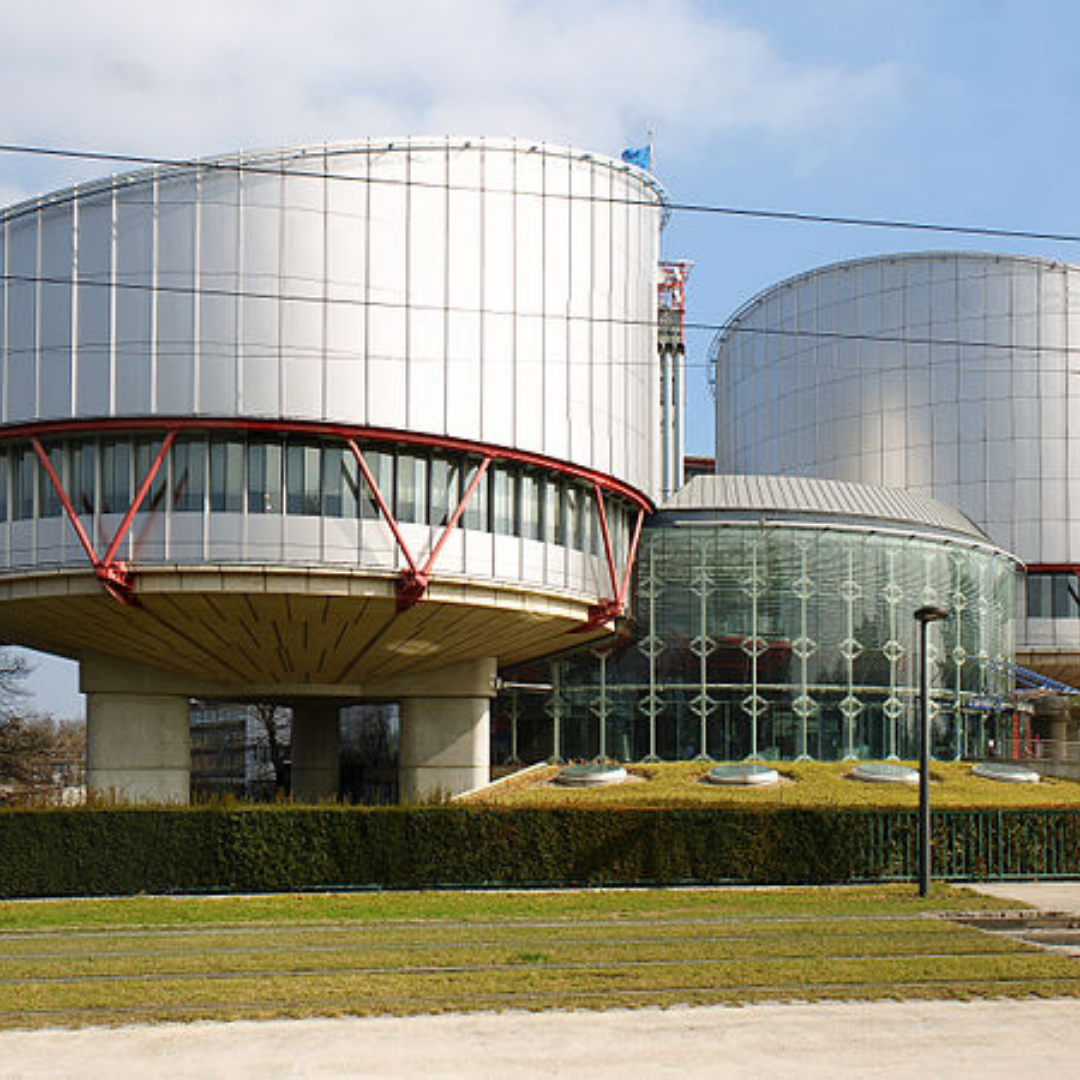
Same-sex marriage/ Civil union
Oliari and Others (No. 18766/11),
Orlandi and Others v Italy (No. 26431/12), 27 Mars 2014
Find Court’s judgement here. (Violation of Article 8 of the Convention and award of damages)
- The applicants complained that the Italian legislation did not allow them to get married or enter into any other type of civil union and thus they were being discriminated against as a result of their sexual orientation.
- The European Court of Human Rights delivered its judgement on 21 July 2015.
- The Court made a lengthy reference to the submission, particularly the demonstration of the positive obligation to provide some means of recognition supported by the emerging consensus in European and other democratic societies (paras 134-139) and of the indirect discrimination against same-sex couples (paras 140-143).
- The Court found that the Italian Government had overstepped their margin of appreciation and failed to fulfil their positive obligation to ensure that the applicants have available a specific legal framework providing for the recognition and protection of their same-sex unions (para 185). To find otherwise today, the Court would have to be unwilling to take note of the changing conditions in Italy and be reluctant to apply the Convention in a way which is practical and effective (para 186). It found violation of Article 8 of the Convention, and considered unnecessary examining the allegations under Articles 14 in conjunction with 8, and Article 12.
Taddeucci and McCall v Italy

Residence permit
(Application no. 51362/09), 18 May 2012
- The applicants, a same-sex couple, complained that the refusal to grant the residence sought by the second applicant for family reasons had amounted to discrimination on grounds of sexual orientation.
- The European Court of Human Rights delivered its judgement on 30 June 2016.
- It referred to the intervention by ILGA-Europe and partners, ICJ and NELFA (paras 74-77), especially that a number of jurisdictions around the world recognised that a same-sex couple in a long-term, committed and established relationship was in fact a “family member” regardless of whether the couple had been able to marry or otherwise obtain formal legal recognition for their relationship. The Court noted the interveners’ comparative analysis of the concept of “functional families” that sought to establish whether or not the relationship displayed certain essential characteristics and on the basis of which a number of countries had recognised unmarried same-sex couples as “families” or “de facto spouses” for the purposes of certain (economic or other) benefits. It also referred to the notion of indirect discrimination against unmarried same-sex couples: where same-sex couples could not marry, their situation should not be compared with that of unmarried opposite-sex couples but with that of married opposite-sex couples.
- The Court held that, by deciding to treat homosexual couples – for the purposes of granting a residence permit for family reasons – in the same way as heterosexual couples who had not regularised their situation the State infringed the applicants’ right not to be discriminated against on grounds of sexual orientation. There was accordingly a violation of Article 14 of the Convention taken in conjunction with Article 8.